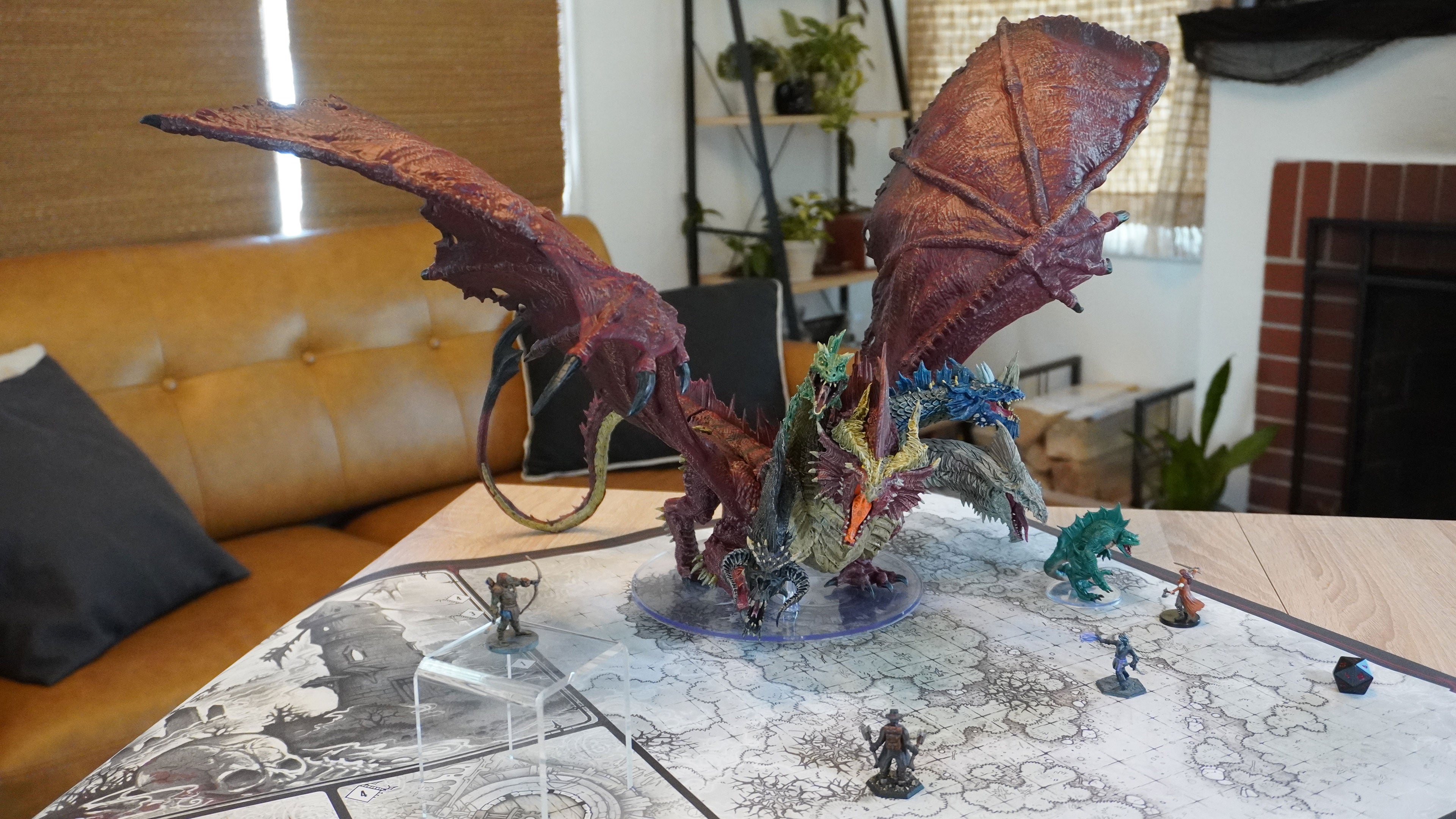Unleashing Chaos: The D&D Aspect of Tiamat in Your Campaign
In the fantastical realm of Dungeons & Dragons, few figures inspire such awe and terror as Tiamat, the five-headed Queen of Evil Dragons. Her name alone evokes images of apocalyptic destruction, her five heads roaring flames, acid, poison, lightning, and frost upon a world trembling before her might. While often depicted as a colossal dragon goddess, Tiamat's influence extends far beyond her physical form, seeping into the world through her worshipers and, most intriguingly, through her aspects.
The concept of an "aspect" in D&D refers to a fragmented manifestation of a deity's power, a lesser echo of their true divine essence. These aspects can take on various forms, from powerful avatars capable of independent action to subtle emanations that influence individuals and events. When it comes to Tiamat, her aspects are not mere echoes but potent conduits of her chaotic and destructive nature. They represent the different facets of her personality and domains, each capable of wreaking havoc in their own unique way.
Imagine a cult dedicated to the chromatic dragon queen, their rituals growing increasingly fervent and blasphemous. As their dark devotion reaches a fever pitch, a swirling vortex of elemental energy cracks open reality, and from it emerges not Tiamat herself, but a fearsome dragon wyrm infused with the essence of her blue dragon aspect. This creature, though not as powerful as the Dragon Queen in her full glory, possesses a terrifying fraction of her might, capable of laying waste to armies and cities with its lightning breath and mastery over storms.
This example merely scratches the surface of what it means to incorporate a D&D aspect of Tiamat into your campaign. Each of her five heads represents a different aspect of her being: Black, Blue, Green, Red, and White, corresponding to the chromatic dragon colors. Each aspect carries its own unique blend of elemental power, personality traits, and potential for chaos. A cult devoted to the Green Dragon aspect, for instance, might be found deep within a jungle, twisting nature to their will and plotting to poison the water supplies of their enemies. Meanwhile, a Red Dragon aspect might manifest as a raging inferno, consuming all in its path and leaving behind nothing but ash and despair.
The beauty of incorporating a D&D aspect of Tiamat into your campaign lies in the versatility and sheer narrative potential it offers. It allows you to introduce elements of epic-level threats and challenges without necessarily throwing a full-blown deity at your players. An aspect of Tiamat can serve as a recurring antagonist, a harbinger of things to come, or even a powerful ally to villainous factions within your world. Imagine the political intrigue as different cults, each devoted to a different aspect of Tiamat, vie for power and dominance, their agendas clashing in a symphony of destruction.
Understanding the motivations and powers of each aspect is crucial for weaving compelling narratives. For example, the Black Dragon aspect embodies Tiamat's cunning and love of deception. This aspect might manifest subtly, whispering corrupting thoughts into the minds of kings or manipulating events from the shadows to sow discord and mistrust. In contrast, the White Dragon aspect, embodying Tiamat's raw, untamed fury, is far less subtle. It might manifest as a force of pure destruction, a blizzard of icy death sweeping across the land, annihilating all in its path without mercy or remorse.
By incorporating these nuances into your campaign, you can create truly unforgettable encounters. Will your players face off against a cunning Black Dragon aspect manipulating events behind the scenes, or will they find themselves battling for survival against the unbridled rage of the White Dragon aspect? The choice is yours, and with each decision comes the opportunity to craft a truly epic adventure.
Where the wild things are a journey into childrens literature
Ryan reynolds height revealed from feet to centimeters
Chalk line tools at ace hardware your guide


![Ruined Temple of Tiamat [40x40] : r/battlemaps](https://i.pinimg.com/originals/83/10/67/831067084014043cdd6551a07d8ec052.jpg)








![[Art] Our campaign setting's version of Tiamat](https://i.pinimg.com/736x/32/b0/9f/32b09fb80e8e7a71268bb8d53d1df641.jpg)

